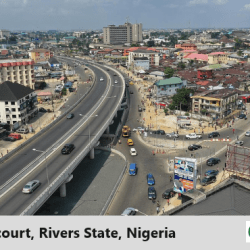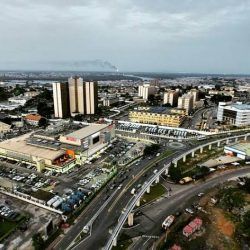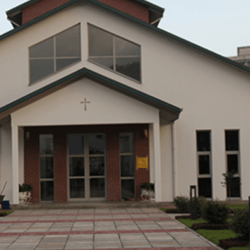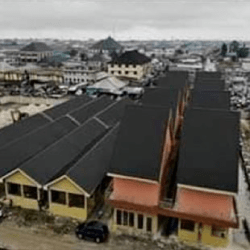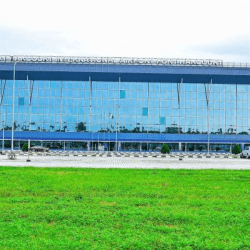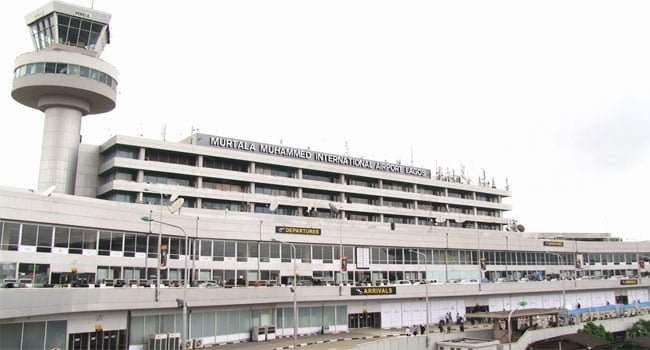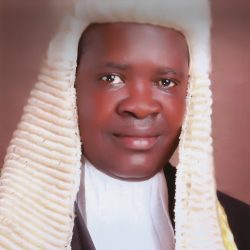Rivers is a State in Southern Nigeria. It’s both an oil and commercial hub. The State comprises 23 Local Government Areas, four degree-awarding institutions, two refineries, a petro-chemical plant, fertilizer plant and a liquefied natural gas plant.
Port Harcourt. the capital, is one of Nigeria’s largest commercial centres and has the second busiest seaport in the country. This petroleum city has a busy international airport with regular local and international flights to all parts of the country and major cities of the world. It marks the eastern terminal of Nigeria’s railway system.
Rivers State, one of Nigeria’s 36 States was created from the then Eastern Region of Nigeria by Decree No. 19 of 1967. Before then, the territory was referred to as Oil Rivers Protectorate, a name derived from its central role in the oil trades of the last two centuries, first, the trade in palm oil and then, crude oil.
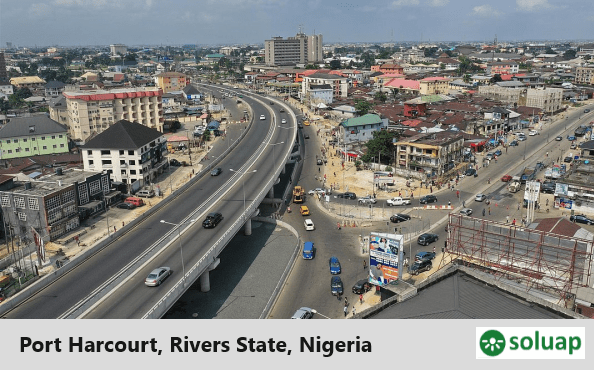
The state is the heart of the hydro-carbon industry, responsible for a huge chunk of the nation’s foreign exchange earnings. It is accountable for over 48% of crude oil produced on-shore in the country and over 90% of the liquefied natural gas that Nigeria is currently exporting to several countries of the world.

Rivers State has many indegineous ethnic groups namely: Abua, Andoni, Ekpeye, Engenni, Etche, lbani , lkwerre, Kalabari, Ndoni, Okrika, Ogoni etc. These ethnic groups have existed together for centuries, long before the creation of the State and are currently distributed in twenty three Local Government Areas.

Rivers State is the fifth most populous State in Nigeria with over 3 million residents.
Rivers State is also the sixth-largest geographic area in Nigeria.
The state has an indigenously diverse population with major riverine and upland divisions with beautiful cultural heritage.

The major ethnic groups are: Ogoni, Ijaw and Ikwerre.
The riverine, including most of the state’s towns and villages surrounded by water is moderately inhabited.

Engagement in arts often serves to strengthen social bonds in subtle but important ways, and to forge connections that may not have existed before.

Rivers State arts and culture are a vital tool in promoting a stronger social fabric and enhancing the social health of our state.
ECONOMY
It is the second largest economy in the country, next only to Lagos State. Port Harcourt, the State’s capital, is one of the largest cities in the country and contributes significantly to the nation’s financial, manufacturing, transport and telecommunications sectors, among others. In 2007, the State’s gross domestic product (GDP) was $21.07 billion and a per capita income of$3.965.

Rivers State generates about a third of Nigeria’s gross domestic product, gross domestic and national income and foreign exchange. Most of the multinational oil and gas companies in Nigeria and abroad are based either in Rivers State or have offices and branches in the state. These companies include, Shell Petroleum Development Company, Chevron Nigeria Limited, Total-Elf-Fina, Nigeria

Agip Oil Company, Saipem Nigeria Limited, Dawoo Nigeria Limited, Nigeria Liquified Natural Gas Limited. The State also has two petroleum refineries; two seaports, two airports, the Trans Amadi Industrial Estate and the Onne Oil and Gas Free Zone.
NATURAL RESOURCES
Rivers State is famous for its vast reserve of crude oil and natural gas. More than 40% of Nigeria’s output of crude oil and gas resources is produced in the state. Apart from crude oil, the State is also rich in silica sand, glass and clay and other solid minerals, most of which is untapped.
MANUFACTURING
Manufacturing activities are presently very limited in Rivers State. The State depends largely on goods and commodities imported from abroad or produced from other cities such as Aba, Onitsha and Lagos. Nevertheless the Trans Amadi Industrial Estate in Port Harcourt host some manufacturing companies. There are also some considerable manufacturing activities taking place in the Eleme/Onne industrial hub where Indorama Eleme Petrochemicals Limited, the Nigerian Petroleum Refinery Company and the Notore Chemical Industries, among others is located.
